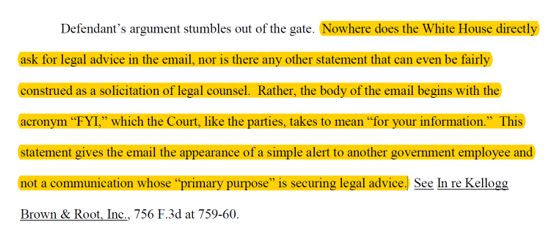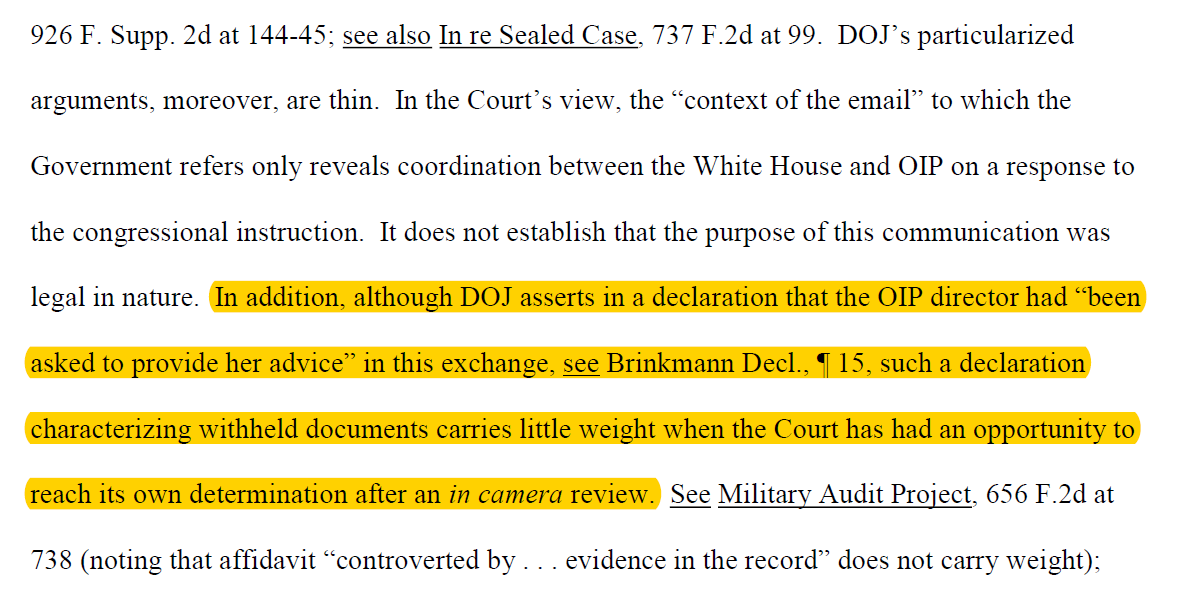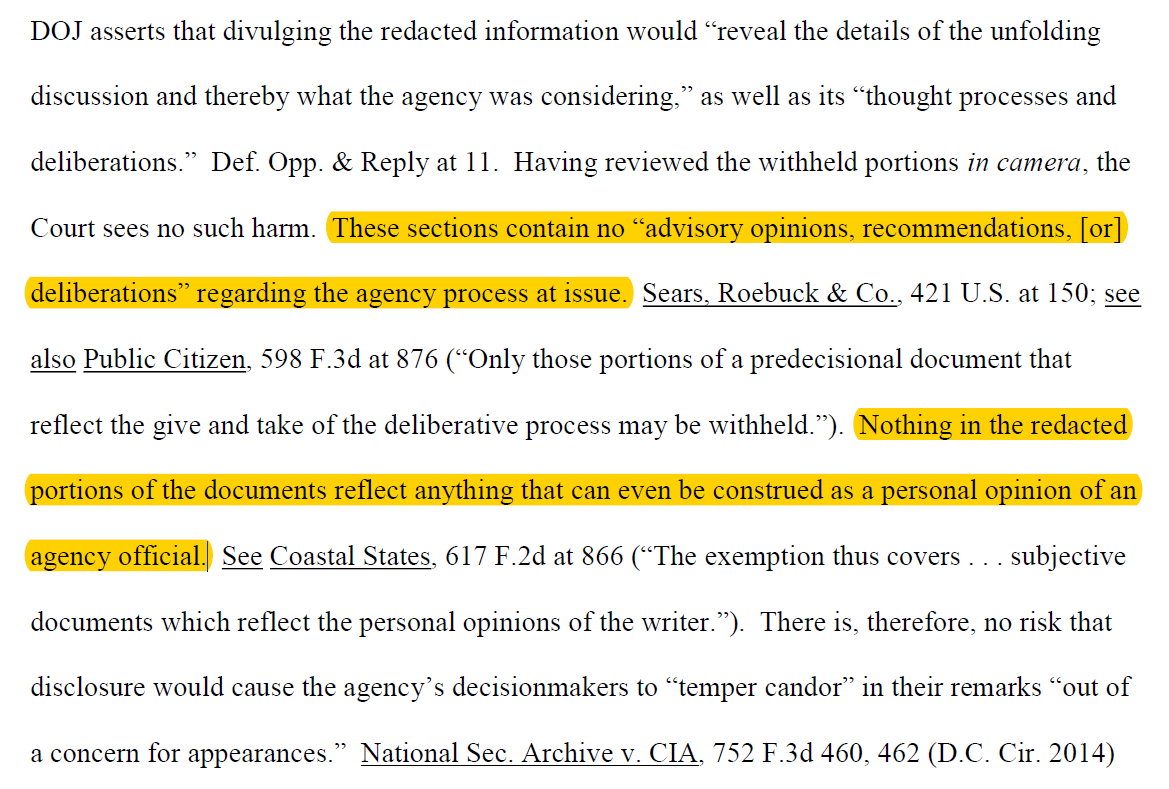CoA seeks to correct the definition of a “record” to prevent federal agencies from unnecessarily redacting public information
Washington, D.C. (Oct. 15, 2018) – Cause of Action Institute (CoA Institute), a government watchdog organization, today filed a lawsuit against the U.S. Department of Justice (DOJ), challenging the Department’s definition of a “record” under the Freedom of Information Act (FOIA). DOJ’s guidance document classifies “records” only as the material requested in a FOIA request. This allows agencies to break a single record into multiple smaller records, redacting information that would otherwise be public and not meet allowable exemptions under the FOIA statute (e.g. releasing a single paragraph while redacting the rest of an email as a “nonresponsive record”). DOJ’s policy unnecessarily restricts public information that should not be redacted.
James Valvo, counsel and senior policy advisor at CoA Institute, issued the following statement:
“DOJ’s FOIA policy and misreading of the definition of a record under FOIA actively seeks to restrict access to public information beyond the scope of federal law. This is poor public policy, and an attempt to undermine laws that require the government remain transparent and accountable.”
Background:
- The U.S. Department of Justice FOIA guidance document allows the agency, and others that rely on its guidance, to segment unified records into multiple smaller records to avoid disclosure.
- This case seeks to establish, for the first time, a binding definition of a “record” under the FOIA.
- Courts have held numerous times that FOIA contains only nine exemptions and agencies may not use “nonresponsive” as a tenth. (for example, personal identifying information, records that pertain to national security, etc.)
- For more background on the legal issue, click here.
Attachments:
About Cause of Action Institute
Cause of Action Institute is a 501(c)(3) non-profit working to enhance individual and economic liberty by limiting the power of the administrative state to make decisions that are contrary to freedom and prosperity by advocating for a transparent and accountable government.
Media Contact:
Matt Frendewey
matt.frendewey@causeofaction.org
202-699-2018




